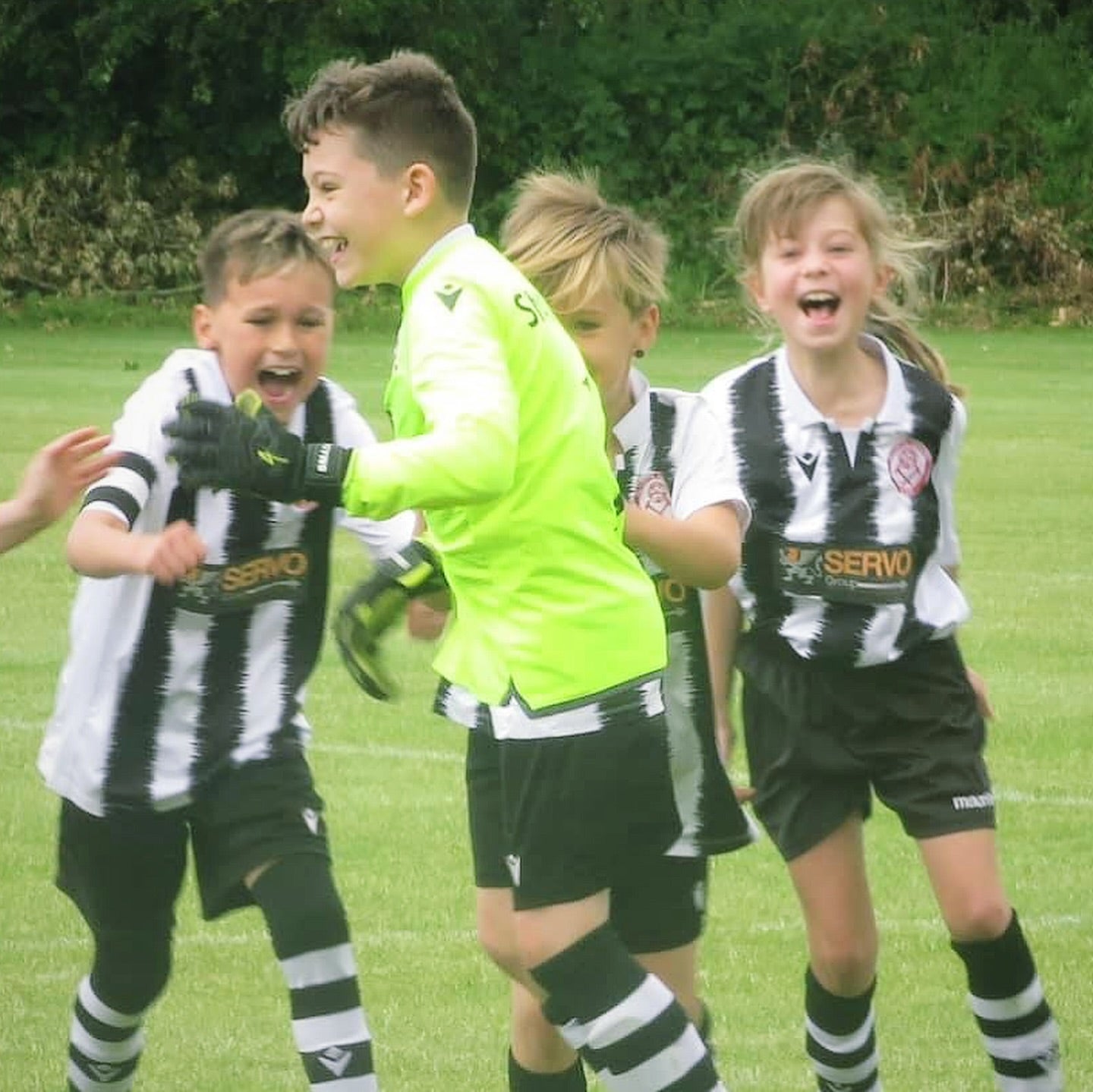In today's fast-paced world, mental health is a crucial focus, particularly for children as they navigate through their formative years. These early years are a critical time for both physical and mental development, and one of the most effective ways to support children's mental well-being is by encouraging them to stay active, especially through sports and physical activities.
At Laceeze, we believe in promoting not just physical performance but also the mental health benefits of staying active. Sports offer children the chance to build essential life skills, boost self-esteem and develop resilience, all of which significantly contribute to their mental well-being.

Anxiety in Children: A Growing Concern
Children, much like adults, experience anxiety, but they may not always understand or articulate their feelings. They face numerous pressures, such as fitting in with their peers, dealing with schoolwork, and navigating changes in their bodies. These pressures can lead to feelings of stress and anxiety.
Young Minds, a leading UK mental health charity, highlights several factors that can contribute to anxiety in children, such as rapid changes in routine, taking on responsibilities that are beyond their developmental capacity, and stress at home, including financial or family tensions. Struggles at school, whether academic or social, also play a significant role.
While a certain amount of anxiety is normal, it becomes a problem when it interferes with a child’s everyday life. For some children, anxiety can manifest so severely that they avoid certain situations or activities altogether, which can lower their self-esteem and confidence.
How to Spot Anxiety in Children
Recognising anxiety in children can be challenging, especially in younger ones who may struggle to express how they are feeling. However, there are some tell-tale signs that parents and guardians can look out for. In younger children, anxiety may present itself through irritability, clinginess, difficulty sleeping, or even recurring nightmares. Some children might become unusually tearful or withdrawn from social interactions.
In older children, anxiety can manifest in different ways, such as avoiding school or other activities they once enjoyed, having angry outbursts, or experiencing difficulties concentrating. They may also be filled with negative thoughts or repeatedly express fears that bad things are going to happen.
As a parent or guardian, it’s important to be attuned to these signs and take action if needed. If you notice persistent symptoms, consulting with a healthcare professional or family doctor is a good step forward.
Physical Activity and Its Positive Impact on Mental Health
Physical activity has long been recognised as beneficial for mental health and this is particularly true for children. Exercise doesn’t just improve physical health; it also supports mental well-being by helping children sleep better, manage stress more effectively, and experience the positive effects of feel-good hormones like endorphins.
Engaging in team sports or group activities offers children even more benefits. It helps them form social connections, work together towards a shared goal and feel part of a supportive community. Being part of a team teaches children how to navigate both successes and challenges, which boosts resilience and helps them develop emotional intelligence.

Michelle Griffiths-Reeve, an accredited Cognitive Behavioural Therapist and director of Psychology to Succeed, stresses the importance of both physical activity and social connection in children's mental health:
“Team sports such as football or rugby provide a unique environment where children can build resilience and a strong sense of self, both of which are crucial in preventing mental health issues. Going through both wins and losses as a team helps children develop key coping mechanisms for life’s ups and downs. These experiences foster emotional resilience and provide a foundation for long-term mental well-being.”
What If Your Child Is Anxious About Starting or Returning to Sports?
While the benefits of sports are well known, some children may feel anxious about joining or returning to physical activities. This anxiety can be heightened when starting a new sports club or team at school, particularly if they fear they won’t perform as well as their peers or worry about fitting in. This anxiety is understandable, but there are steps you can take to help ease their transition.
- Start a conversation: Open a dialogue with your child about their concerns. Understanding the specific reasons behind their anxiety can help you address the issue more effectively. It may also be helpful to have a conversation with the coach to ensure they are aware of your child’s feelings and can offer support.
- Ease into it: Encourage your child to take small, manageable steps towards getting involved. This could mean attending a few practices before fully committing or starting with a less competitive team. Working with coaches to go easy on your child in the beginning can help them gradually build their strength, stamina and confidence.
- Celebrate small wins: Acknowledge and celebrate every small achievement along the way. This positive reinforcement helps rebuild their confidence and keeps them motivated to continue participating.
- Highlight the fun: Emphasise the enjoyment that comes with being part of a sports team or club. Whether it’s spending time with friends, being outdoors, or simply having fun, ensure that your child understands the focus is on enjoyment, not performance.
Michelle Griffiths-Reeve adds:
“How children see themselves has a huge impact on how they cope with stress and challenges. Team sports provide an ideal environment to develop self-esteem, learn to trust others, and build resilience. These experiences offer children the tools they need to handle life’s challenges and maintain long-term mental health.”
Laceeze’s Commitment to Children's Mental and Physical Health
At Laceeze, we believe that physical activity plays a vital role in shaping children's mental health. We are committed to making sports accessible to all children and supporting initiatives that promote both physical activity and mental well-being.
Encouraging your child to participate in sports, whether through starting a new club at school or rejoining a familiar team, can help them develop essential life skills and maintain strong mental health. Staying active teaches children how to navigate challenges, build relationships, and foster confidence — skills that will benefit them throughout their lives.
For more information about how Laceeze is supporting children’s mental and physical health through grassroots sport, visit our Laceeze Foundation page.
Want to get involved with the discussion? Join our welcoming Pitchside Parents Hub community group on Facebook and have your say.


0 comments